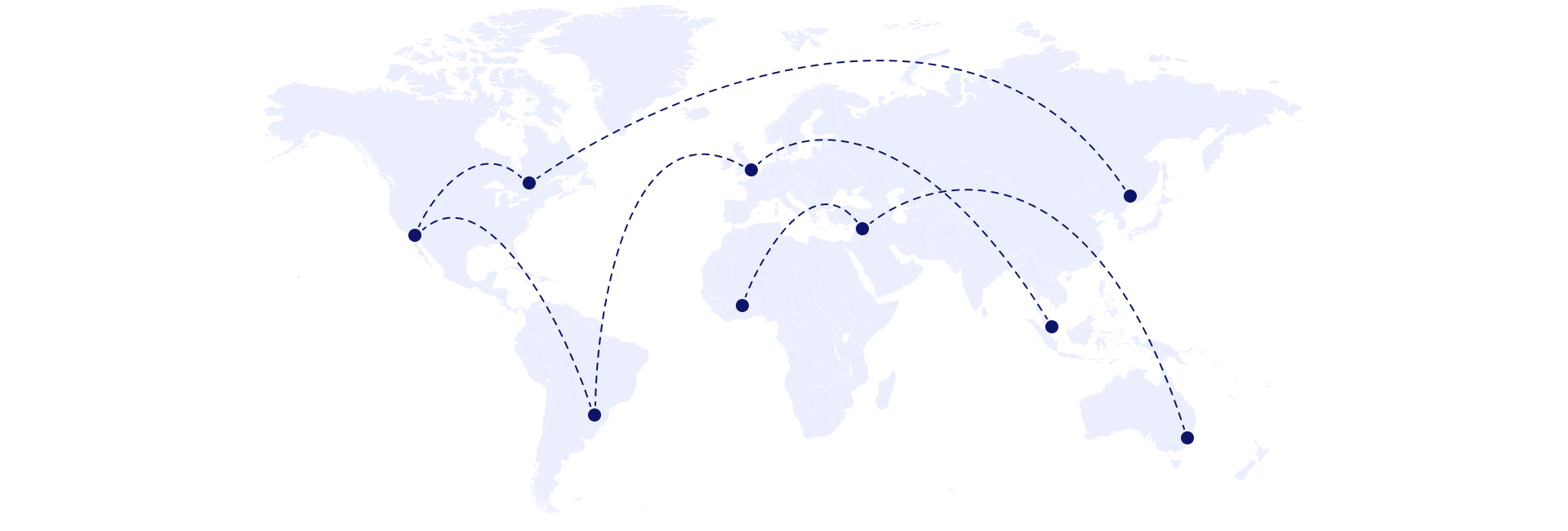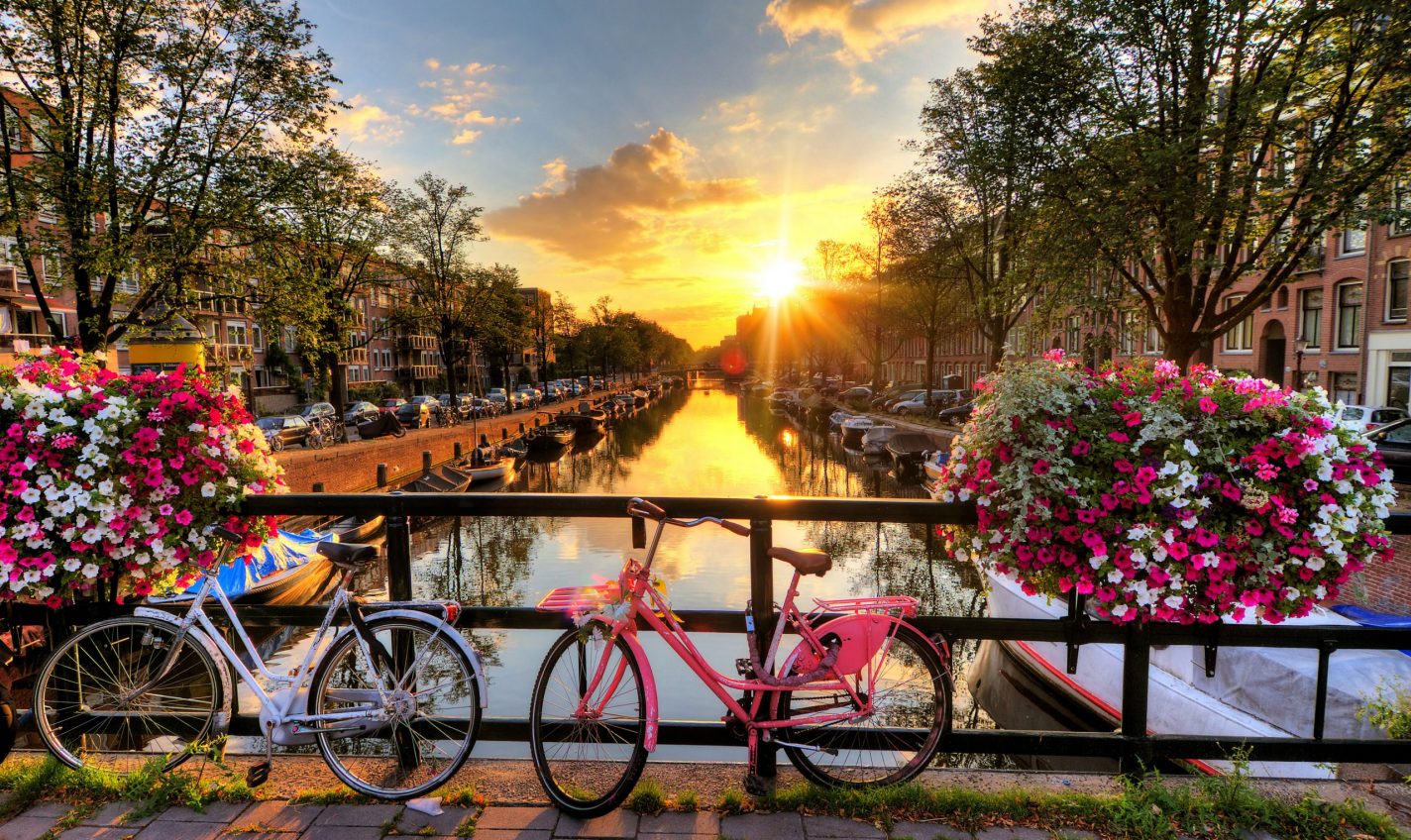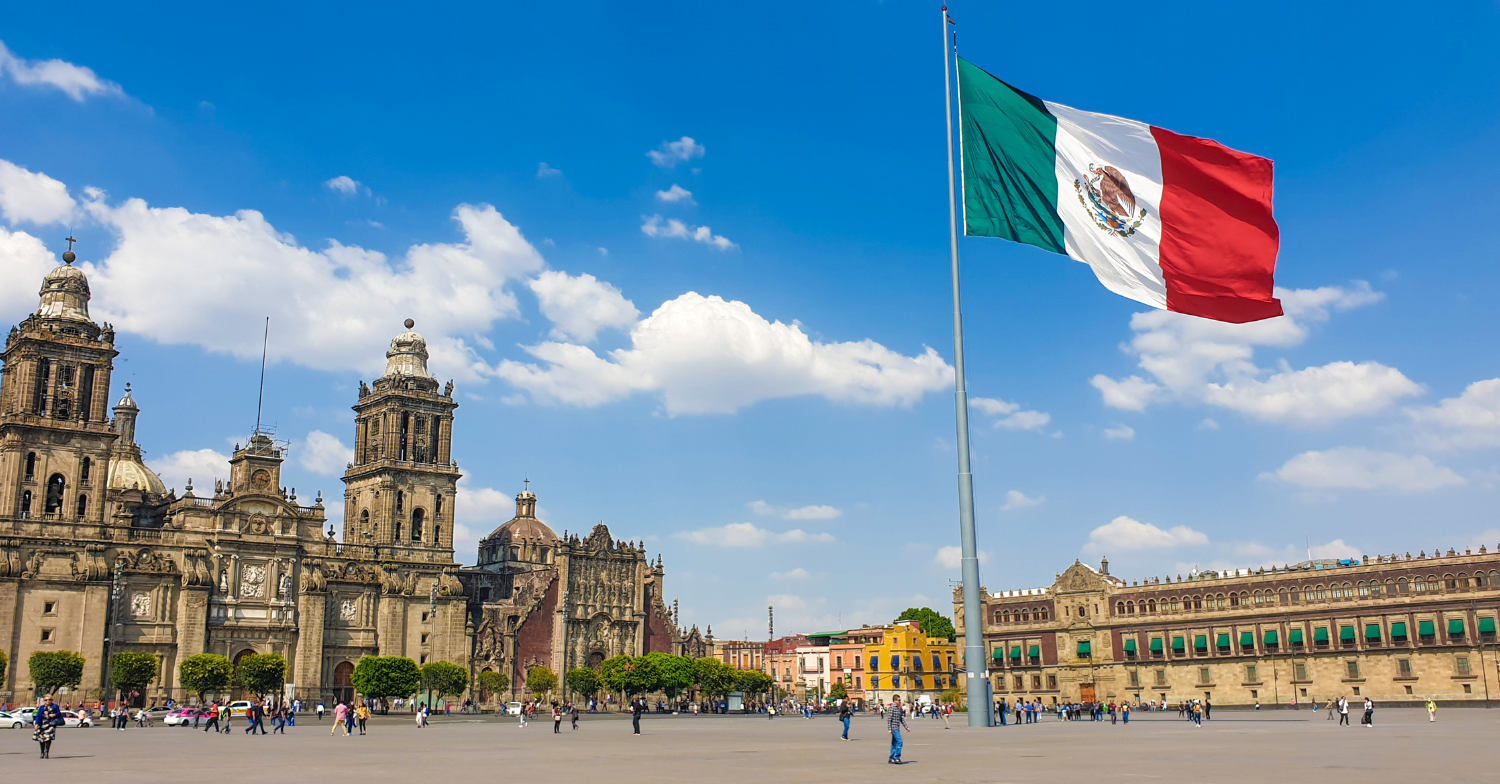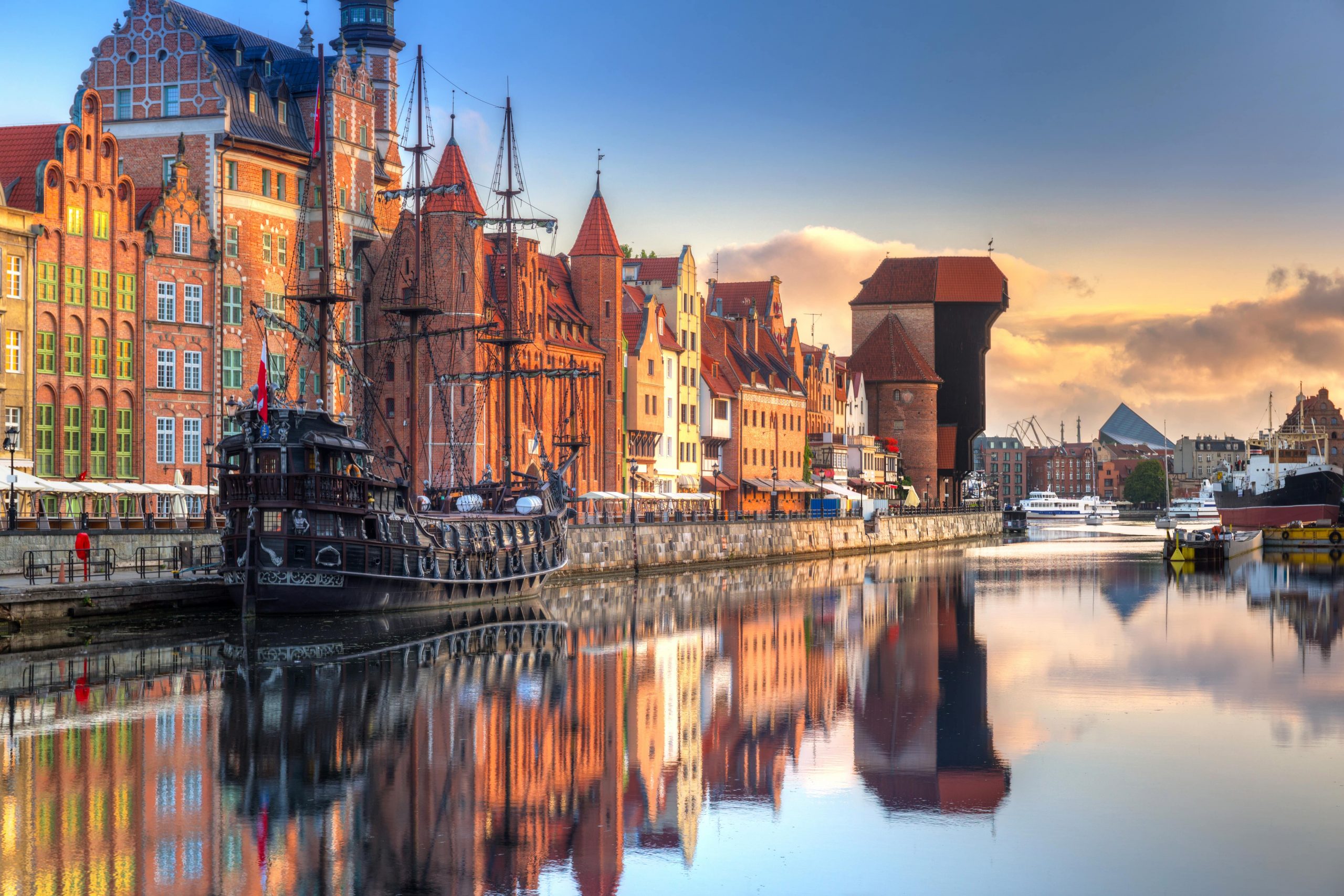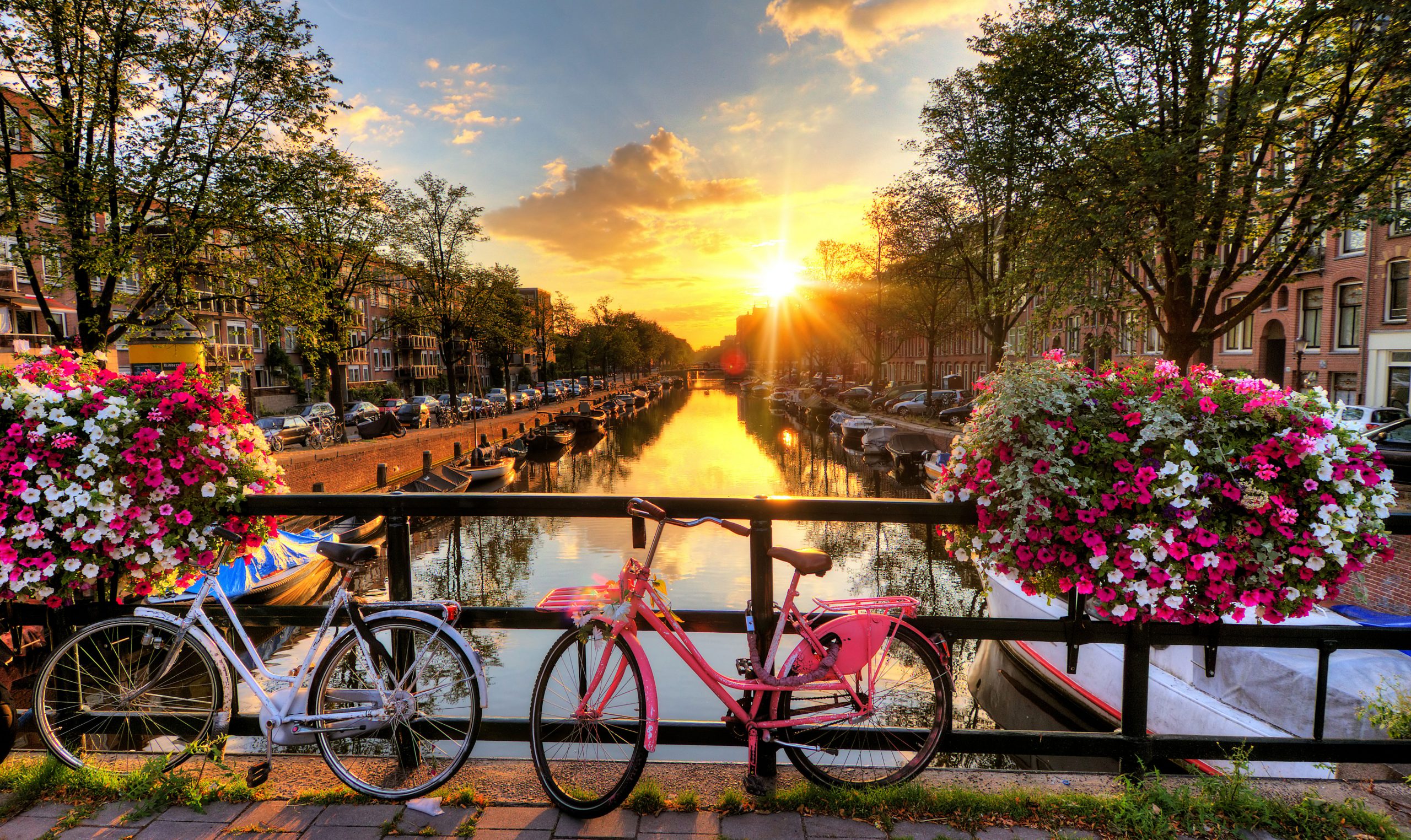
With several bustling cities, a highly educated workforce and a vibrant cultural scene, the Netherlands will be a good fit for many businesses. English is widely spoken and there are great international connections, not least through Amsterdam’s vast Schiphol airport or Rotterdam’s huge port.
To help you decide if you want to expand your business to the Netherlands, here are some of the main things to consider before you make the leap.
Weigh up the pros and cons
To thoroughly assess the business, social and economic landscape of the Netherlands to check if there's a real opportunity for your business, it's important to weigh up the pros and cons. To help you, here are some of the main bonuses and downsides of starting a business in the Netherlands.
If you’ve got an innovative idea or fledgling business you want to take to the Netherlands there’s good news, you can apply for a start-up visa. This visa is a temporary residence permit and gives you a year to "produce or introduce an innovative new product or service". During that time you’ll be guided by a facilitator to help your start-up grow into an established business. Visit the Government of the Netherlands website for more details.
A potential downside is the bureaucracy as there are several steps to make your business official and tax compliant. To start a business in the Netherlands you need to:
- Register with the Dutch Commercial Register at the Netherlands Chamber of Commerce (KVK)
- Choose a legal structure, for example a sole proprietor or private limited company
- Register as an employer with the Dutch Tax and Customs Administration if you intend to hire staff
- Pay Dutch National Insurance Contributions
- Report to your local municipality if you want to run a business from your home
It’s not an insurmountable obstacle but worth making sure you’re prepared for all the official requirements to avoid any delay to when you can start trading.
Consider the costs
From renting commercial premises to paying customs and taxes, you’ll need to have a clear view of projected expenses to see if expanding to the Netherlands will be a profitable move.
If you’re a non-EU resident you’ll need a visa to work in the Netherlands and will have to pay the associated application fee. This is €342 for a start-up visa and €1,416 to work as a self-employed person. For the most accurate and up-to-date list of visa application fees, visit the Dutch Immigration and Naturalisation Service website.
Your wage costs are likely to be slightly higher in the Netherlands than the UK. For example, the minimum wage in the Netherlands is €77.76 per day for those 21 and older compared to £58.52 for a 7-hour day in the UK.
There are a good few taxes businesses need to pay in the Netherlands, too. These include:
- VAT at 0, 9 or 21 per cent
- Corporation tax – for private limited companies or public limited companies
- Income tax – for sole traders or a partner in a commercial partnership
- Dutch Dividend Tax on shareholder profits
If you want to see how these taxes compare to other European countries you can use the European Commission’s tax search tool.
Research your sector
To assess demand for your business it’s worth checking how your sector performs in the Netherlands. With its highly-educated workforce and leading research institutions, the Netherlands has strong science and tech sectors. The cultural sector is booming too, with world-renowned museums like the Rijksmuseum and major cultural events like hosting The Eurovision Song Contest in 2021.
According to Invest in Holland, which is run by the Netherlands Foreign Investment Agency (NFIA), Holland’s key industries are:
- Life science and health
- Agrifood
- IT and tech
- Chemicals
- High-tech systems
- Creative
- Energy
- Finance
This diverse list of sectors means there’s a wide range of opportunities for UK businesses. Research your sector to see if there’s a direct fit for your business or a complementary sector that will bring you customers. For example, if you run a fintech or accounting business you might want to establish yourself somewhere with plenty of finance companies.
If your business is entirely online and therefore less reliant on locating close to complementary businesses, it’s still worth looking into the most popular business types in the Netherlands. It will give you a better idea of your audience and the sort of products or services potential customers are interested in, as well as their spending power if they work in highly paid sectors.
Open a World Account for free
- Open up to 10 local currency accounts, with local sort codes, account numbers and IBANs
- Direct CNY payments to 1688.com
- Pay suppliers, partners and staff in 37 currencies without hidden fees
- Collect secure payments from 100+ marketplaces, overseas buyers and payment processing gateways
- Pay and get paid easily with local bank details on your invoices
- Lock in conversion rates to manage your currency risk
Test the waters with a marketplace
If you sell consumer products then having a presence on a Dutch online marketplace is a quick and potentially profitable way to establish a business in the Netherlands.
Some of the top-performing online marketplaces in the Netherlands are:
You’ll no doubt already be familiar with Alibaba and Amazon due to their well-established global presence but Bol is more unique to the Netherlands.
Bol is the biggest online retailer in the Netherlands, making it a key marketplace for reaching Dutch consumers. Like its competitors, the site offers a huge range of products covering everything from bargains to luxury consumer goods. A slight sticking point could be the fact that your product descriptions need to be in Dutch and you need to be able to offer customer service by phone in Dutch.
Scout locations
For a relatively small country, the Netherlands has some bustling cities that brilliantly balance work opportunities with a booming social scene.
It will come as no surprise that Amsterdam, the capital of the Netherlands and its biggest city, has real business pulling power. It has great national and international transport links and the social and cultural life will be a real draw for prospective employees. Multinational companies with headquarters in Amsterdam include Adidas, Tesla Motors and Netflix.
If your business plan includes any international shipping then Rotterdam could be a good option for you. This port city is the second largest in the Netherlands and has some world-renowned architecture and a thriving art scene. Global companies with headquarters in Rotterdam include Unilever, Proctor & Gamble and Coolblue.
If you like to be close to the seat of power then The Hague might be the Dutch city for you. It’s the home of the government of Holland and the UN’s International Court of Justice. It’s close to the beach with a great food scene, so there are plenty of opportunities for you and your employees to unwind.

Vanessa Barlow
Experience: 13 years writing about international trade, business, finance and technology
Business support from WorldFirst
Businesses trust WorldFirst
- Almost 1,000,000 businesses have sent $150B around the world with WorldFirst and its partner brands since 2004
- Your money is safeguarded with leading financial institutions
